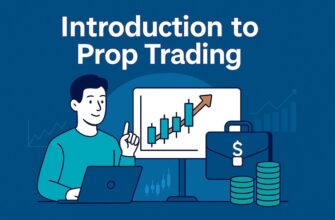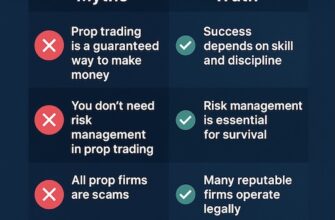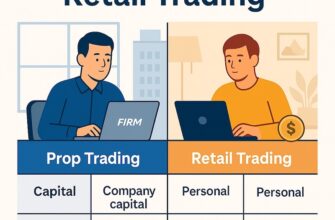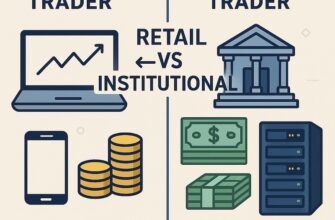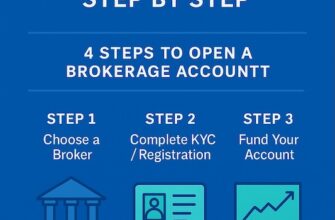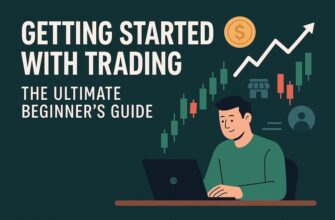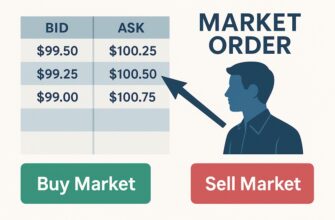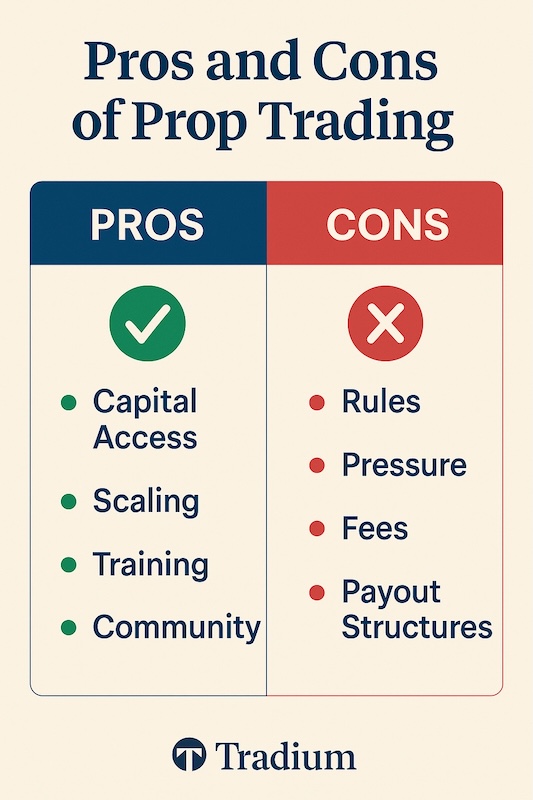
For traders exploring career paths, proprietary trading — often called prop trading — can look like an attractive shortcut to bigger profits. Instead of risking only your own savings, you trade with firm capital and potentially keep a share of the gains. At the same time, the industry comes with rules, fees, and pressures that many beginners underestimate.
In this guide, we’ll explore the pros and cons of prop trading, weighing the advantages of prop firms against the disadvantages of proprietary trading. By the end, you’ll have a realistic understanding of whether this model suits your personality, skills, and goals.
- Advantages of Prop Trading
- Access to Larger Capital
- Ability to Scale Faster
- Training and Mentorship
- Community and Support
- Disadvantages of Prop Trading
- Rules and Restrictions
- Performance Pressure
- Fees and Costs
- Payout Structures
- Comparing Prop vs Independent Trading
- Who Benefits Most from Prop Trading?
- Should You Try Prop Trading?
- Key Takeaways
- FAQ
Advantages of Prop Trading
For many traders, the benefits of prop firms are compelling. Let’s break them down. Many traders are drawn to prop firms for their funding opportunities, but to see how this compares to other models, check our guide on Prop Trading vs Retail Trading.
Access to Larger Capital
The most obvious advantage is capital. As a retail trader, your growth is limited by the size of your personal account. With a prop firm, you can often control tens or even hundreds of thousands of dollars after passing an evaluation or training phase.
Example: A retail trader with $2,000 in savings is limited to small position sizes. At a prop firm, the same trader might access $50,000 or more, multiplying potential profits without risking personal life savings.
Ability to Scale Faster
Prop firms typically increase your capital allocation as you prove consistency. Many offer tiered growth models — double your account size after hitting profit targets. This makes scaling far quicker than growing a personal account organically.
Training and Mentorship
Many prop firms provide structured education, risk management training, and feedback. This is especially valuable for beginners who might otherwise learn through costly trial and error.
Analogy: It’s like learning to drive with a licensed instructor instead of experimenting alone on the highway.
Community and Support
Unlike the often solitary world of retail trading, prop firms may connect you with other traders, chat groups, or in-office teams. This sense of community helps motivation and provides new ideas.
Disadvantages of Prop Trading
At the same time, there are clear disadvantages of proprietary trading that every trader should consider. Some of these drawbacks are closely tied to beginner misconceptions. To see how false beliefs can mislead traders, read Most Common Trading Myths Debunked.
Rules and Restrictions
Prop firms impose strict risk limits: daily loss caps, maximum drawdowns, or rules about holding overnight. Break the rules and your account may be terminated, regardless of profitability.
Reality check: Many traders fail evaluations not because they lose money overall, but because they break one risk rule.
Performance Pressure
Trading with someone else’s money comes with accountability. For some, this adds discipline. For others, it creates stress and poor decision-making.
Example: A trader may hesitate to let a trade run because they’re afraid of breaching a drawdown rule.
Fees and Costs
Most modern remote prop firms charge evaluation fees or monthly subscriptions to access capital. While these fees are small compared to actual capital provided, they still create upfront costs.
Payout Structures
Prop traders typically keep 70–90% of profits, with the rest going to the firm. This is fair compensation for capital access, but it means you don’t keep 100% of what you earn — unlike retail trading.
Comparing Prop vs Independent Trading
When weighing prop trading vs retail trading, it’s less about which is “better” and more about which suits your situation. For historical context on how proprietary trading developed into today’s modern firms, explore History and Evolution of Prop Trading.
- Prop trading advantages: larger capital, faster scaling, training, structured risk management.
- Prop trading disadvantages: rules, fees, and shared profits.
- Independent trading advantages: complete freedom, 100% profit retention, no external oversight.
- Independent trading disadvantages: limited by personal funds, slower scaling, no support network.
Analogy: Prop trading is like joining a competitive sports team — you get coaching, facilities, and teammates, but you must follow team rules. Independent trading is like training alone — total freedom, but no guidance or safety net.
Who Benefits Most from Prop Trading?
Prop trading isn’t for everyone, but some groups benefit more than others.
- Beginners who want structured training and risk discipline.
- Skilled traders with limited personal capital who need firm funding to scale.
- Ambitious individuals who thrive under accountability and structured environments.
- Global traders outside traditional financial hubs who now have access to capital through online prop firms.
On the other hand, highly independent traders who dislike rules or want full profit retention may prefer retail trading.
Should You Try Prop Trading?
Deciding whether to try prop trading depends on your goals and personality. Ask yourself:
- Do I want access to larger capital without risking personal savings?
- Am I comfortable following rules and working within risk limits?
- Can I handle pressure knowing my performance is monitored?
- Am I okay with splitting profits in exchange for resources and funding?
If your answers are mostly “yes,” then the benefits of prop firms may outweigh the downsides. If your answers are “no,” retail trading may suit you better.
Key Takeaways
- The pros of prop trading include access to capital, faster scaling, training, and community support.
- The cons of prop trading include strict rules, performance pressure, fees, and profit splits.
- Compared to independent trading, prop trading offers structure and resources but sacrifices freedom and profit retention.
- Prop trading works best for disciplined traders who want to scale quickly with firm support.
- The choice comes down to personal goals, tolerance for rules, and willingness to share profits.
FAQ
Is prop trading profitable?
Yes, many traders profit through prop firms, but success depends on discipline and strategy. Prop firms provide capital, but traders still need skill to generate consistent returns.
What are the risks of prop trading?
The main risks are rule violations, pressure, and fees. Financially, the trader risks little personal capital, but career risk is high if they cannot perform consistently.
Do all prop firms charge fees?
Most online prop firms charge evaluation or subscription fees. Some in-office firms may not, but they often recruit only experienced traders.
Can anyone join a prop firm?
Most firms allow anyone to attempt an evaluation, but passing requires skill, discipline, and risk management.
Is prop trading better than retail trading?
It depends. Prop trading offers funding and structure, while retail trading offers independence. The best path is the one that matches your personality and goals.

